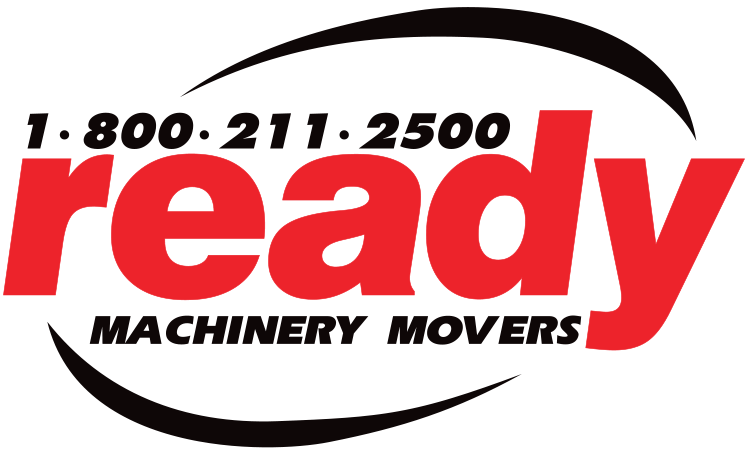A forklift is a valuable asset to your business. This machine makes operational tasks easier and gets complex tasks completed quickly. Forklifts may be high-efficiency complex machines, but they are no different from other machines — they require regular maintenance to stay in the best possible condition. Ensuring optimal performance is simple as long as you follow the forklift maintenance regulations. Proper maintenance and care guarantee years of reliable and safe service, continued operation and productivity.
Why Regular Forklift Maintenance is a Must
Forklift maintenance is crucial for optimal performance, but it is frequently overlooked. Poorly maintained forklifts can be one of the most common causes of workplace accidents.
Regular forklift maintenance ensures:
- Accident Prevention
While driver negligence can result in forklift accidents, other causes include improperly maintained machines. To avoid serious accidents, make sure to keep up with your forklift maintenance routine.
- CCOHS Inspections
The key is meeting all the latest forklift safety standards when CCOHS inspects your company. Without a forklift maintenance checklist or plan in place, you could end up facing a hefty penalty. Hence, a maintenance plan protects your finances in the long run. Citations can be as high as tens of thousands of dollars in fines and penalties.
- Overall Safety
Providing forklift drivers with safety operation training makes them better and more efficient drivers. Moreover, the combination of a fully trained staff and forklift maintenance makes it a win-win for everyone.
Forklift Maintenance Tips
With everyday use, the mechanical parts of a forklift can wear out due to friction and heat. The wearing out process can have a tremendous impact on the moving part; thus, requiring a strict forklift maintenance program.
Here are some key points that will ensure the proper maintenance and care of your forklift:
- Daily Forklift Inspection
It is always a smart idea to perform a daily inspection before using the forklift. Daily forklift inspection is not only a CCOHS requirement, but it helps you detect potential problems, such as a leaky hose or faltering brakes, as early as possible rather than waiting for the machine to breakdown. Also, it ensures that the machine is safe to use. Machine breakdown does not only interfere with machine operation, but it can also cause delays in your daily operations. Use the CCOHS-provided standardized checklist to ensure that all areas of concern are strictly addressed before putting the forklift in use. Among the recommended elements of the checklist include:
- Hoses
- Seat belt function
- Tire pressure and conditions
- Brake performance
- Fluid levels
- Forks and overhead guards
Going above and beyond the recommended forklift maintenance guide benefits an extra layer of safety.
Adherence to the Manufacturer’s Recommended Maintenance Schedule
Adhering to the maintenance schedule provided by the manufacturer ensures the machine’s optimal condition. Most manufacturers recommend a certain period of time for an in-depth machine check and service, like changing the oil every 3 months or after a certain amount of usage.
Refer to the owner’s manual to make sure to complete all tasks, including oil changes, fluid and filter changes, tire conditions, spark plug replacements, brake and drive train servicing, on time to prevent sudden and bigger problems that could cost you money, time, and safety.
- Regular Battery Maintenance
Keeping up with your regular forklift battery maintenance ensures smooth operation and extended forklift life. Bear in mind that batteries do not last forever. Charging the battery based on convenience rather than the recommended schedule can potentially shorten its life. Recharge the battery after an 8-hour shift or when the battery life drops more than 30% and wait until it is fully charged. Also, check the level of water in your battery. The forklift battery should be stored at a safe temperature. Use a battery cleaner or warm water to clean the top of the batteries.
- Weekly Forklift Cleaning
Cleaning does not only improve the forklift’s aesthetic appeal, but it is also an essential safety feature that prevents the buildup of combustible materials on the machine’s surface, as well as allow the radiators to breathe, to ensure safe and effective operation.
Make sure to include weekly cleaning in your forklift maintenance plan, such as wiping down dirt and debris, blowing out the radiator, and changing dirty filters. Weekly cleaning keeps the machine in top working condition for years, saves money by minimizing premature wear and tear on the machine.

- Check the Condition of Your Tires – The repetitive back-and-forth motion of the forklift can increase the risk of wear and tear of its tires. Check for any signs of tread loss, leaks, and deflation. Poor tire conditions do not only cause malfunction but also damage to the warehouse floors. That is why it is important to include the inspection of the tire condition. Replace them immediately if you notice any signs of damage.
- Deal with Minor Problems as Soon as Possible – Despite daily inspection and regular forklift maintenance schedule, mechanical issues can unexpectedly arise, causing interference and compromising safety. Minor problems can eventually turn into bigger once without prompt attention and repair.
Additionally, small mechanical issues are much cheaper to repair, saving you money and time. For instance, fixing a minor coolant leak is more affordable than replacing the entire engine or buying a new forklift machine. A neglected coolant leak can cause extensive damage to the machine. Have a problematic brake examined rather than waiting for it to stop working entirely.
Dealing with any issues immediately is the best way to ensure the optimal condition of your forklift. Encourage your employees to report problematic forklift machines and have them removed from operation for repair.
Proper and timely forklift maintenance may seem a daunting task, but it benefits higher productivity and better workplace safety. Additionally, accidents and downtimes could result in lost productivity and costly repairs. Most importantly, it ensures the safety of all the employees during every shift. Protecting your employees from accidents that could result in serious injuries also protects your business.
At Ready Machinery Movers, we ensure that our forklifts are properly and regularly maintained to ensure optimal performance and service. If you require plant relocation assistance, we can provide high-performance and heavy-duty rental forklifts to transfer your cargo. Our professional machinery movers are here to help. For inquiries, give us a call at our toll-free number 1-800-211-2500 or fill out our quick online contact form to send us your message. Our team will respond to you promptly and directly.
